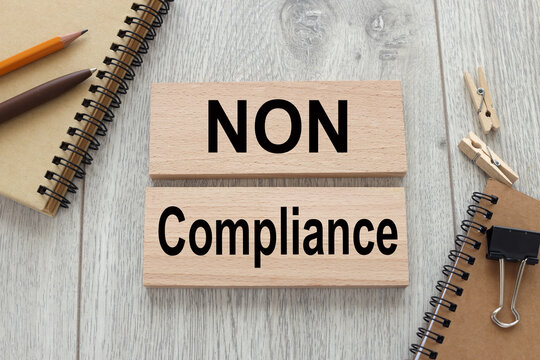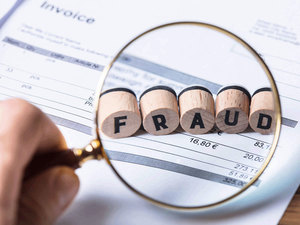The Reserve Bank of India (RBI) has taken strict action against four credit bureaus for non-compliance with regulations, imposing monetary penalties on them. The credit bureaus, responsible for maintaining credit information, were found to have inaccuracies and incompleteness in their records during a statutory inspection. This article highlights the penalties imposed by the RBI and sheds light on the issues faced by borrowers due to the credit bureaus’ failure to update information promptly.
The Reserve Bank of India (RBI) recently imposed monetary penalties on four credit bureaus for failing to comply with the Credit Information Companies (Regulation) Act, 2005, and Credit Information Companies Rules, 2006. TransUnion CIBIL Limited was fined Rs 26 lakh, Equifax Credit Information Services Private Limited and Experian Credit Information Company of India Private Limited were fined Rs 24.25 lakh each, and CRIF High Mark Credit Information Services Private Limited was fined Rs 25.75 lakh. During a statutory inspection, the RBI discovered inaccuracies and incompleteness in the credit information maintained by these credit bureaus. The credit bureaus were found guilty of non-compliance because they failed to update credit information or inform borrowers about the steps taken to correct discrepancies and the reasons for any delays within 30 days of receiving complaints. The RBI issued notices to these companies, asking them to explain why penalties should not be imposed for their failure to comply with the CIC (R) Act and CIC Rules. After considering the evidence, the RBI concluded that the charge of non-compliance with various provisions was valid and warranted the imposition of monetary penalties.
The RBI had received numerous complaints from customers about the credit information companies (CICs) not updating the status of borrowers. Many customers reported that when they rectified a default issue or pointed out a wrong classification, the CICs failed to act within the specified timeframe. Consequently, these customers faced difficulties in obtaining loans or credit cards because banks rely on the databases of CICs and the ratings provided by them to make decisions on loan and card approvals. Whenever a credit card holder defaults on a payment, the CICs are immediately notified, but they have failed to reclassify them when the payments were rectified.
In August 2022, the RBI announced that it would bring all credit bureaus under the purview of the RBI Integrated Ombudsman Scheme. This step was taken to penalize such firms for delays in updating credit information and to regulate the indiscriminate use of customer data by lenders.
Credit information bureaus maintain the credit information of borrowers, including individuals, corporations, and SMEs, which can be accessed by banks and other lending institutions. They gather information from various credit providers such as banks, credit card companies, and non-bank financial institutions. The borrowers are rated on a scale of 300-900, with 900 being the highest rating. Banks and finance companies typically make decisions based on the ratings provided by the credit bureaus. A credit score above 750 increases the chances of getting a loan or credit card easily and at a lower interest rate. Conversely, if a borrower defaults, their credit score will drop below 500, reducing the likelihood of obtaining low-interest rates or even loans and credit cards.
Credit bureaus charge fees for inquiries, even if they have no data on the entity. Banks require the usage of credit information reports (CIRs) in their credit appraisal process. CICs and banks are expected to keep the credit information collected and maintained by them updated regularly, either on a monthly basis or at mutually agreed shorter intervals.
According to TransUnion CIBIL data, there were 34,304 suit-filed accounts involving Rs 934,882 crore and 16,185 willful defaulters involving Rs 347,424 crore as of December 2022.
Borrowers should be vigilant in monitoring their credit status. If they default on repayment and subsequently make the payment, they should contact the CIC after a month to check their status. If they are still classified as defaulters with a lower rating, they should raise the issue with the CIC for rectification. Borrowers often remain unaware of their credit rating and credit status unless they request a report from the CICs because they do not have direct access to the CICs’ databases like banks do.
In response to concerns raised by customers and to ensure compliance with regulations, the Reserve Bank of India (RBI) has penalized four credit bureaus for their non-compliance. These penalties serve as a reminder of the crucial role credit bureaus play in maintaining accurate credit information and promptly updating borrower records. The RBI’s move to bring all credit bureaus under its Integrated Ombudsman Scheme demonstrates its commitment to addressing delays in credit information updates and safeguarding customer data from indiscriminate use by lenders. Borrowers, on their part, should remain vigilant about their credit status and promptly approach credit bureaus for rectification when necessary. By maintaining accurate credit records, credit bureaus can enable borrowers to access loans and credit cards more easily while promoting transparency and fairness in the lending process.








